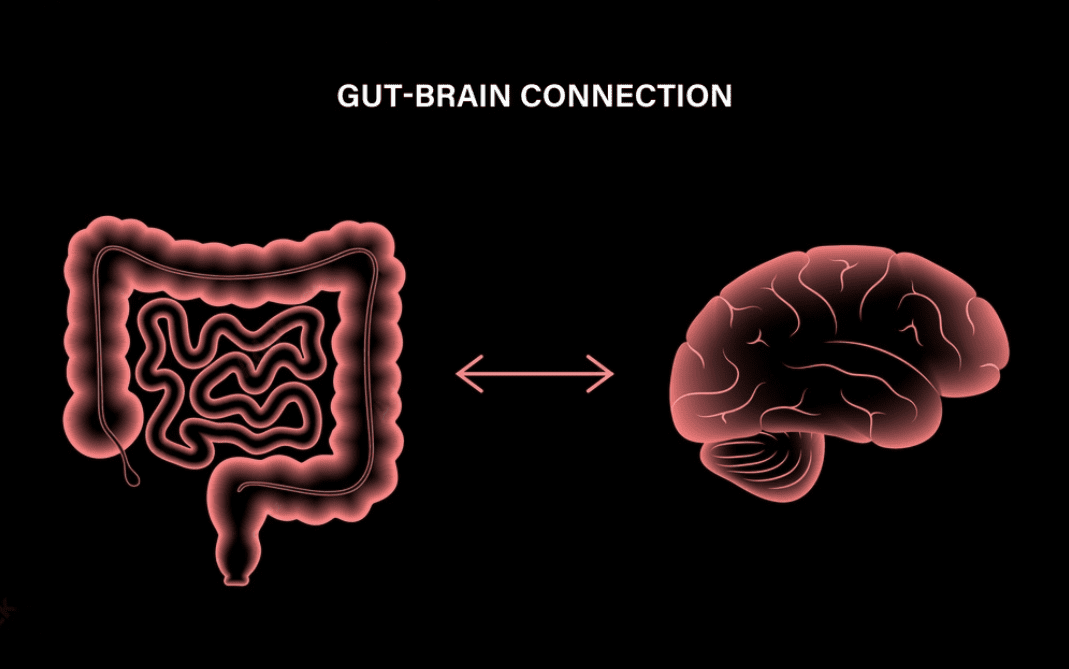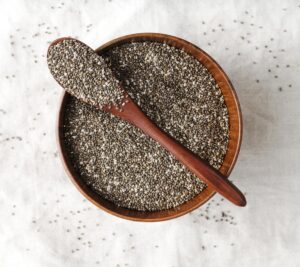The Gut-Brain Connection: Unraveling the Influence of Diet and Microbiota on Brain Health

The human body is a complex and interconnected system where various organs and systems work in harmony to maintain optimal health. Among the fascinating connections within our bodies, one of the most intriguing is the gut-brain connection. Research in recent years has shed light on the bidirectional communication system that exists between the gut and the brain, known as the gut-brain axis.
In this post, we will delve into the captivating world of the gut-brain connection and explore how the gut microbiota, a diverse ecosystem of microorganisms residing in our gastrointestinal tract, plays a crucial role in influencing brain health and cognitive function. We will uncover the significance of maintaining a healthy gut-brain axis and the impact of diet and lifestyle on this essential relationship.
So, let’s embark on a journey to unravel the secrets of the gut-brain connection and discover how nurturing our gut microbiota can lead to improved brain health and overall well-being.
The Gut Microbiota: A Complex Ecosystem
The gut microbiota, often referred to as the “forgotten organ,” is a diverse community of trillions of microorganisms, including bacteria, viruses, fungi, and archaea, residing in our gastrointestinal tract. This complex ecosystem plays a vital role in numerous bodily functions, ranging from digestion and nutrient absorption to immune system regulation.
In this section, we will explore the fascinating world of the gut microbiota and its significance in maintaining gut health and overall well-being. We will discuss the various factors that influence the composition of the gut microbiota and how a diverse and balanced microbiome supports optimal gut function.
1. The Diversity of Gut Microbes
The gut microbiota is a highly diverse and dynamic ecosystem. It begins to form at birth and continues to evolve throughout our lives, influenced by factors such as genetics, diet, environment, and lifestyle. Each individual harbors a unique composition of gut microbes, which can vary significantly from person to person.
The main phyla of bacteria that make up the gut microbiota include Firmicutes, Bacteroidetes, Actinobacteria, and Proteobacteria. Within these phyla, there are hundreds of species, each with its own specific functions and roles within the gut ecosystem.
2. Functions of the Gut Microbiota
Despite its microscopic size, the gut microbiota plays a vital role in various aspects of our health:
2.1. Digestion and Nutrient Absorption
Certain gut bacteria assist in the breakdown of complex carbohydrates, fibers, and other indigestible compounds that our bodies cannot process on their own. As a result, these microbes help in extracting additional nutrients and energy from our food, contributing to our overall nutritional status.
2.2. Immune System Support
The gut microbiota plays a significant role in training and supporting our immune system. Beneficial gut bacteria stimulate the production of immune cells and maintain the integrity of the gut lining, which acts as a barrier against harmful pathogens.
2.3. Synthesis of Essential Compounds
Some gut bacteria have the ability to synthesize essential compounds, such as certain vitamins (e.g., vitamin K and some B vitamins) and Short-chain fatty acids (SCFAs). SCFAs have anti-inflammatory properties and play a crucial role in maintaining gut health.
3. Factors Influencing the Gut Microbiota
Several factors can influence the composition and diversity of the gut microbiota:
3.1. Diet
Diet is one of the most significant factors shaping the gut microbiota. A diet rich in fiber and plant-based foods promotes the growth of beneficial bacteria, while a diet high in processed foods and sugar may lead to an overgrowth of less desirable microbes.
3.2. Antibiotic Use
Antibiotics, while essential for treating infections, can also disrupt the balance of the gut microbiota by eliminating both harmful and beneficial bacteria. This disruption can be temporary or long-lasting, depending on the type and duration of antibiotic use.
3.3. Lifestyle and Environment
Lifestyle factors, such as stress, physical activity, and exposure to environmental toxins, can also influence the gut microbiota. Chronic stress, for example, may lead to changes in gut microbial composition and function.
3.4. Age and Developmental Stage
From the moment we are born, our gut microbiota starts to take shape. The primary source of our initial gut microbiota comes from our mother during childbirth. As the baby passes through the birth canal, it is exposed to the diverse array of bacteria present in the mother’s birth canal, which begins the process of colonization in the infant’s gut. Additionally, during a natural vaginal birth, the baby ingests some of the mother’s fecal microbes, further contributing to the establishment of the gut microbiota.
For infants born via cesarean section, the initial microbial exposure is different. Instead of being exposed to the mother’s vaginal and fecal microbes, cesarean-born babies initially acquire skin microbes from contact with the mother’s skin and the surrounding environment. As a result, the gut microbiota of cesarean-born infants may differ from that of vaginally born babies in the early stages of life.
The gut microbiota continues to evolve during the first years of life. Factors such as breastfeeding and exposure to different environments also play a crucial role in shaping the gut microbial composition during this developmental stage. Breast milk contains essential nutrients and prebiotics that promote the growth of beneficial bacteria, supporting the establishment of a healthy gut microbiome.
As children grow and are exposed to more diverse foods and environments, their gut microbiota continues to mature and become more stable.
As we age, maintaining a healthy gut microbiota through a balanced diet, lifestyle, and probiotic foods may continue to support brain health and cognitive vitality throughout adulthood and beyond.
4. Gut Dysbiosis
When the balance of the gut microbiota is disrupted, a condition known as gut dysbiosis can occur. Gut dysbiosis is characterized by an overgrowth of harmful bacteria and a decline in beneficial microbes. This imbalance has been linked to various health conditions, including gastrointestinal disorders, metabolic diseases, and even neurological disorders like Alzheimer’s disease.
In the next sections, we will explore the fascinating link between the gut microbiota and the brain, known as the gut-brain axis, and how it influences brain health and cognitive function.
The Gut-Brain Axis: How They Communicate
The gut and the brain may seem distant anatomically, but they are intricately connected through the gut-brain axis. This bidirectional communication system involves a complex network of nerve pathways, hormones, and neuroactive compounds that allow the gut and brain to exchange information.
In this section, we will dive into the mechanisms through which the gut and brain communicate with each other. We will explore the role of the vagus nerve, a long cranial nerve that serves as a major pathway for gut-brain signaling. Additionally, we will examine the influence of neurotransmitters and neuroactive compounds produced by gut bacteria on brain function.
1. Vagus Nerve: A Direct Connection
One of the major pathways through which the gut and brain communicate is the vagus nerve. The vagus nerve is the longest cranial nerve in the body, extending from the brainstem to the abdomen, and it serves as a direct communication link between the two systems. The vagus nerve carries information from the gut to the brain and vice versa.
When the gut microbiota ferment dietary fibers and produce short-chain fatty acids (SCFAs), such as butyrate, acetate, and propionate, signals are sent to the brain via the vagus nerve. These SCFAs have been shown to have neuroprotective effects and can influence brain function and behavior.
2. Neurotransmitters and Signaling Molecules
The gut and the brain also communicate through neurotransmitters and signaling molecules. Neurotransmitters are chemical messengers that transmit signals between nerve cells, and many of these neurotransmitters are found in both the gut and the brain. For example, serotonin, a neurotransmitter known for its role in mood regulation, is produced both in the brain and in the gut. In fact, about 90% of the body’s serotonin is found in the gut.
The gut microbiota can also produce neurotransmitters and signaling molecules, such as gamma-aminobutyric acid (GABA) and dopamine. These compounds can influence brain function and may play a role in modulating mood and behavior.
3. Immune System Signaling
The gut is home to a large portion of the body’s immune system, and it interacts closely with the brain’s immune cells. When the gut is exposed to harmful pathogens or experiences inflammation, the immune system responds by producing cytokines and other immune signaling molecules. These molecules can enter the bloodstream and cross the blood-brain barrier, allowing them to communicate with the brain and influence its function.
Conversely, the brain can also signal to the gut’s immune cells through the release of stress hormones. Stress and emotions can impact gut function and may lead to gastrointestinal symptoms.
4. Hormones and Gut Peptides
Hormones and gut peptides, such as ghrelin and leptin, are another means of communication between the gut and the brain. Ghrelin, often referred to as the “hunger hormone,” is produced in the gut and can influence appetite and food intake. Leptin, produced by adipose tissue, signals to the brain when the body has had enough to eat.
The gut microbiota can also influence the production and release of hormones and gut peptides. For example, certain beneficial bacteria in the gut can produce short-chain fatty acids, which have been shown to regulate the release of gut peptides and affect appetite.
5. Microbiota Metabolites
The gut microbiota metabolizes dietary nutrients and produces various metabolites, some of which can cross the blood-brain barrier and influence brain function. Short-chain fatty acids, as mentioned earlier, are one example of microbiota metabolites with neuroactive properties. Additionally, certain metabolites can act as precursors for neurotransmitter synthesis, further highlighting the impact of the gut microbiota on brain health.
Understanding the gut-brain axis can shed light on the powerful influence that gut health and the gut microbiota can have on brain health, cognition, and even emotional well-being.
The significance of maintaining a healthy gut becomes increasingly evident in promoting brain health and overall vitality.
The Gut Microbiota and Mental Health
The gut-brain connection extends beyond gut health and has far-reaching implications for mental well-being. A growing body of research indicates a strong link between the gut microbiota and mental health, with imbalances in gut bacteria being associated with conditions such as anxiety, depression, and stress.
In this section, we will explore the fascinating world of the gut-brain-mood axis. We will examine studies that investigate the role of gut microbes in influencing mood and emotional states. Additionally, we will discuss how interventions such as Probiotics and dietary changes can potentially improve mental health outcomes.
1. The Gut Microbiota’s Influence on Mood Regulation
The gut microbiota has been shown to influence mood regulation and emotional responses. Certain gut microbes produce neurotransmitters, such as serotonin and gamma-aminobutyric acid (GABA), which are essential for emotional stability and mental well-being. Serotonin, often referred to as the “happy hormone,” is a neurotransmitter that contributes to feelings of happiness and relaxation. GABA, on the other hand, is an inhibitory neurotransmitter that helps reduce stress and anxiety.
When the gut microbiota is in balance, it supports the production of these neurotransmitters. However, disruptions in the gut microbial community, such as dysbiosis (an imbalance of gut bacteria), can lead to altered neurotransmitter production, potentially contributing to mood disorders like anxiety and depression.
2. Gut Microbiota, Stress, and the HPA Axis
The hypothalamic-pituitary-adrenal (HPA) axis is a complex system that regulates the body’s stress response. When exposed to stress, the HPA axis triggers the release of cortisol, a hormone that prepares the body to cope with the stressor. However, chronic stress can lead to imbalances in the HPA axis and elevate cortisol levels, impacting mental health.
Interestingly, the gut microbiota can modulate the HPA axis and influence how the body responds to stress. Certain gut microbes produce metabolites that can signal the HPA axis and affect cortisol release. An imbalance in the gut microbiota, particularly an overgrowth of harmful bacteria, has been associated with an exaggerated stress response and an increased risk of stress-related mental health conditions.
3. Gut Microbiota and Neuroinflammation
Neuroinflammation, characterized by inflammation in the brain, is thought to play a role in the development of various mental health disorders. The gut microbiota can influence neuroinflammation through the production of pro-inflammatory cytokines and other inflammatory molecules.
A balanced gut microbiota helps maintain a healthy gut lining, preventing the leakage of harmful substances into the bloodstream (a condition known as “leaky gut”). When the gut lining is compromised, bacterial by-products can enter circulation and trigger systemic inflammation. This inflammation may reach the brain and contribute to neuroinflammation, which is believed to be a factor in conditions like depression, anxiety, and neurodegenerative diseases.
4. Gut Microbiota and Brain-Derived Neurotrophic Factor (BDNF)
Brain-Derived Neurotrophic Factor (BDNF) is a protein that plays a crucial role in the growth, development, and maintenance of brain cells. BDNF supports neuroplasticity, which is the brain’s ability to form new neural connections and adapt to experiences. Neuroplasticity is fundamental to learning and memory, and disruptions in BDNF levels have been linked to psychiatric disorders.
Research suggests that the gut microbiota can influence BDNF production and release. Certain gut bacteria produce metabolites that positively impact BDNF levels, promoting brain health and cognitive function. Conversely, dysbiosis and an unhealthy gut environment have been associated with reduced BDNF levels and potential cognitive impairments.
Gut Health and Cognitive Aging
As we age, cognitive function becomes a significant concern, and cognitive decline is a common phenomenon. However, emerging research suggests that the gut-brain connection may play a role in cognitive aging and the development of neurodegenerative diseases.
In this section, we will delve into the impact of gut health on cognitive aging. We will examine studies that investigate the link between gut microbiota composition and cognitive function in older adults
1. Gut Microbiota Composition and Cognitive Aging
As we age, there are changes in the composition and diversity of the gut microbiota, a phenomenon known as gut dysbiosis. These age-related alterations in the gut microbial community have been associated with various age-related health issues, including cognitive decline.
Studies have shown that older adults with more diverse gut microbiota tend to have better cognitive function and vice versa. A diverse gut microbiota is associated with a higher abundance of beneficial bacteria that produce metabolites beneficial for brain health, such as short-chain fatty acids (SCFAs). SCFAs have been shown to have anti-inflammatory and neuroprotective properties, which may support cognitive function.
Conversely, an imbalance in gut bacteria with an overgrowth of harmful bacteria can lead to the production of inflammatory molecules and Oxidative Stress. Chronic inflammation and oxidative stress are thought to contribute to cognitive decline and neurodegenerative diseases, such as Alzheimer’s and dementia.
2. Gut Permeability and Cognitive Aging
Gut permeability, also known as “leaky gut,” refers to an increase in the permeability of the intestinal lining, allowing harmful substances to leak into the bloodstream. This condition can be exacerbated by an unhealthy gut microbiota and dietary factors.
Leaky gut can trigger systemic inflammation, leading to an immune response that may affect the brain. Inflammatory molecules can cross the blood-brain barrier and contribute to neuroinflammation, which is a common feature of cognitive aging and neurodegenerative diseases.
Moreover, studies have suggested that leaky gut may allow the entry of lipopolysaccharides (LPS), a component of the outer membrane of certain bacteria, into circulation. Increased LPS levels have been associated with cognitive impairment and increased risk of dementia.
The Gut Microbiota and Neurological Disorders
Neurological disorders, such as Alzheimer’s disease and Parkinson’s disease, pose significant challenges to individuals and society as a whole. Recent research has uncovered potential connections between the gut microbiota and the development or progression of these conditions.
In this section, we will explore the current scientific understanding of the gut-brain connection in the context of neurological disorders. We will discuss the role of gut dysbiosis, inflammation, and the gut-brain axis in the pathogenesis of these conditions. Additionally, we will highlight potential avenues for therapeutic interventions targeting the gut microbiota to support neurological health.
1. Gut Microbiota and Autism Spectrum Disorder (ASD)
Autism Spectrum Disorder (ASD) is a neurodevelopmental disorder characterized by challenges in social communication, repetitive behaviors, and restricted interests. While the exact cause of ASD remains unclear, emerging evidence suggests that the gut microbiota could play a role in its development and symptom severity.
Children with ASD often exhibit gastrointestinal symptoms, and studies have reported alterations in the gut microbiota composition in individuals with ASD compared to neurotypical individuals. Additionally, the gut-brain axis’s disruption may influence brain development during critical periods, contributing to the development of ASD.
Animal studies have shown that the gut microbiota can affect social behavior and brain function. Modulating the gut microbiota in animal models has resulted in changes in behavior associated with ASD-like symptoms.
2. Gut Microbiota and Neurodegenerative Diseases
Neurodegenerative diseases, such as Alzheimer’s and Parkinson’s, are characterized by the progressive degeneration of nerve cells in the brain. While these diseases have complex causes, researchers have begun exploring the potential role of the gut microbiota in their pathogenesis.
Studies have shown that gut dysbiosis is associated with neuroinflammation and the accumulation of abnormal proteins in the brain, which are hallmark features of neurodegenerative diseases. The gut microbiota’s influence on inflammation and the production of metabolites, such as SCFAs, may impact brain health and contribute to the progression of these diseases.
While the research is still in its early stages, targeting the gut microbiota through dietary interventions or probiotics is being investigated as a potential therapeutic approach to support brain health and slow the progression of neurodegenerative diseases.
Lifestyle Factors for a Healthy Gut-Brain Connection
Maintaining a healthy gut-brain connection requires a holistic approach that includes dietary choices and lifestyle habits. In this section, we will provide practical tips and recommendations for nurturing a healthy gut microbiota to support brain health.
We will discuss the importance of regular exercise, sufficient sleep, and stress management in promoting a diverse and balanced gut microbiome. Furthermore, we will emphasize the significance of mindfulness and relaxation techniques in supporting the gut-brain axis
1. Balanced Diet
A balanced diet rich in nutrients is crucial for nurturing a diverse and thriving gut microbiota. Including a variety of fruits, vegetables, whole grains, lean proteins, and healthy fats provides essential nutrients that support both gut and brain health.
Fiber-rich foods, such as fruits, vegetables, and whole grains, act as prebiotics, feeding beneficial gut bacteria and promoting their growth. Fermented foods, like yogurt, kefir, sauerkraut, and kimchi, are excellent sources of probiotics that introduce beneficial bacteria into the gut.
Avoiding excessive intake of highly processed and sugary foods is essential, as these may lead to imbalances in the gut microbiota and contribute to inflammation.
2. Regular Physical Activity
Engaging in regular physical activity benefits not only the body but also the mind and gut health. Exercise has been shown to increase the production of short-chain fatty acids (SCFAs), which play a role in supporting gut integrity and overall gut health.
Physical activity can also reduce stress and anxiety, further supporting the gut-brain axis’s harmonious functioning. Aim for at least 150 minutes of moderate-intensity exercise or 75 minutes of vigorous-intensity exercise per week.
3. Adequate Sleep
Quality sleep is essential for optimal brain function and gut health. During sleep, the body undergoes vital processes that contribute to tissue repair and gut microbiota balance.
Chronic sleep deprivation can negatively impact the gut microbiota, leading to imbalances that may affect mood, cognition, and overall health. Aim for 7-9 hours of sleep per night to support a healthy gut-brain connection.
4. Stress Management
Chronic stress can disrupt the gut-brain axis and lead to changes in gut microbiota composition. Managing stress through mindfulness practices, meditation, deep breathing exercises, and relaxation techniques can help restore gut balance.
5. Avoiding Antibiotic Overuse
While antibiotics are essential for treating bacterial infections, their overuse can disrupt the gut microbiota by killing both harmful and beneficial bacteria. Whenever possible, work with healthcare professionals to ensure antibiotics are prescribed only when necessary.
If you need to take antibiotics, consider probiotic supplementation or consume probiotic-rich foods to support the gut microbiota during and after the course of treatment.
6. Social Connections
Social interactions and maintaining meaningful relationships positively influence the gut-brain connection. Strong social support can help reduce stress and promote emotional well-being, indirectly benefiting gut health.
7. Avoiding Alcohol and Smoking
Excessive alcohol consumption and smoking can harm the gut microbiota and contribute to gut inflammation. Avoiding smoking and alcohol intake can support a healthy gut and brain.
Takeaway
The gut-brain connection is a fascinating and intricate relationship that has far-reaching implications for our health and well-being. By understanding the impact of diet and lifestyle on the gut microbiota, we can make informed choices to support brain health and cognitive function.
It is essential to adopt a proactive approach to nurture our gut microbiota and foster a harmonious relationship between our gut and brain. By prioritizing a gut-friendly diet and adopting a lifestyle that supports gut health, we can take significant steps towards enhancing our brain health and overall quality of life.






